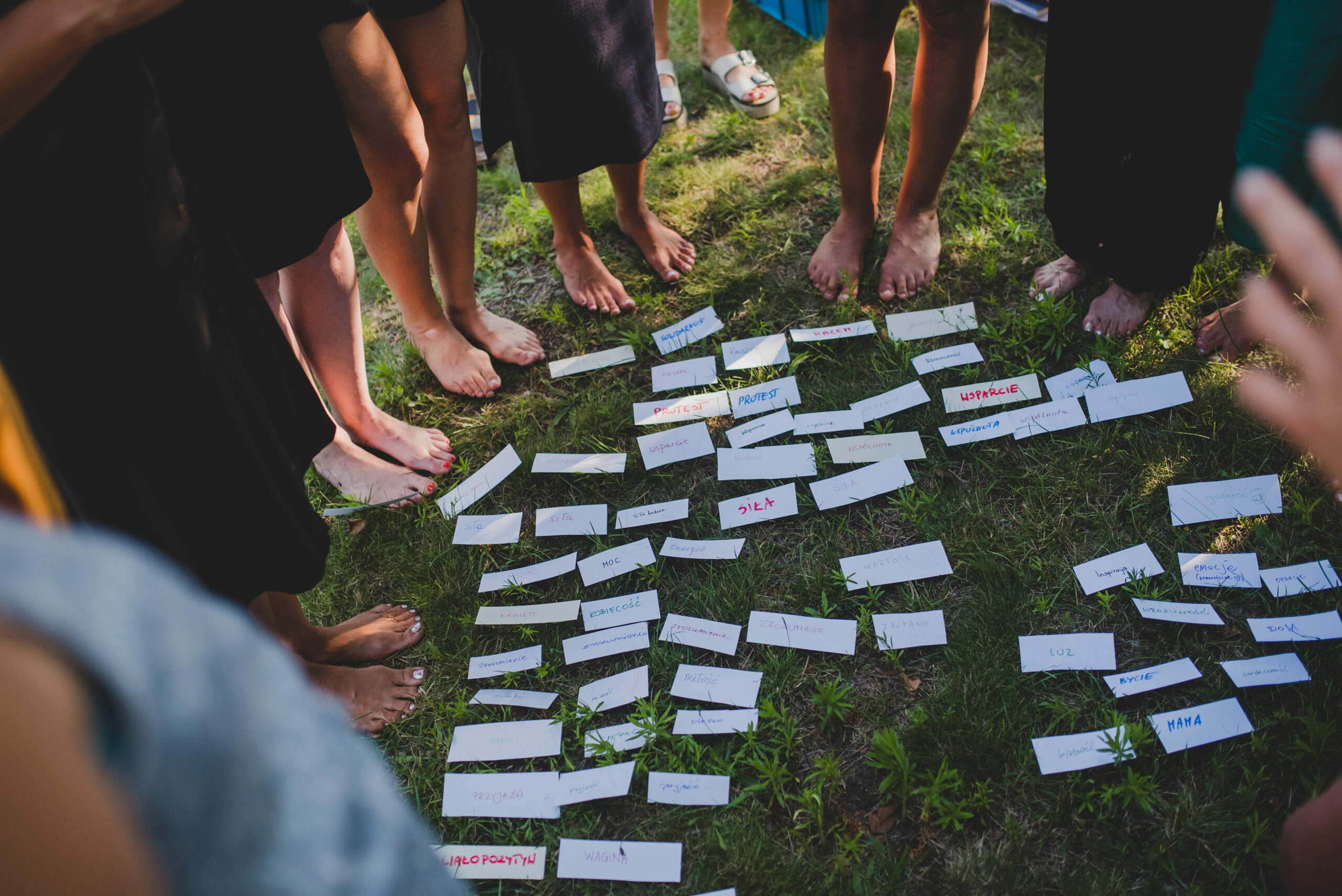text: Katarzyna Szota-Eksner
An evening in a small town in southern Poland. We are organising an event to which we have invited young people. There will be drumming in a circle. I don’t know if they will come, apparently nowadays young people are only interested in the virtual world.
However, they are slowly coming down, mostly girls. They all hold their phones in their hands. They are writing messages, taking photos on Instagram. They are uploading videos to TikToka. We are slowly starting the workshop.
What kind of young generation is this? Locked in the cages of the digital world? Apparently, one in three teenagers already shows symptoms of so-called problematic internet use (the report “Teenagers 3.0” funded by the National Educational Network programme).
On the other hand, in multimedia areas, young people’s knowledge exceeds that of teachers. They communicate efficiently and very quickly using social media. They are open to technological innovations.
The digital revolution and the social and economic changes it has triggered have brought about, in addition to enormous benefits, previously unknown phenomena of a not always desirable nature.
The world is changing, a new generation is creating a new reality. It takes a long time to see today’s youth in a broader perspective – precisely in terms of time.
Polish children and teenagers are in a serious crisis, according to the Report of UNAWEZA Foundation – by Martyna Wojciechowska. The study looked at mental health, self-esteem and empowerment among children and adolescents aged 10-19. The results of the report are alarming. Every third child in our country lacks the will and strength to live.
In the 1980s, when I was young, there was no heckling or offensive comments on the Internet, no cyber violence. However, I still remember a situation when a group of girls from my class ridiculed and insulted a friend. Does heckling on the internet hurt less than violence in the real world?
What is wrong with me? – asks Joanna Flis, a psychologist, in her book about life in a dysfunctional home, environment and Poland. About the life of my generation – children brought up with a key around their necks, i.e. the generation of the 1980s and 1990s.
Children and fish have no voice. The teacher always knows better. What goes on at home is not told to anyone. The model pupil. The naughty pupil will be punished.
“The measures taken are a reaction to the dynamic increase in suicidal behaviour in Poland. According to the Police, more than 2031 suicide attempts by young people were recorded in 2022. This is 140 per cent more than in 2020.” (from a report by Martyna Wojciechowska)
When I look back on my childhood from the perspective of an adult woman and mother of almost grown-up children, I see where adults were at that time – the massive scale of addictions, violence against children at home, school and church, the lack of tolerance for otherness, the struggle for existence in the face of transformation. What kind of adults are we for young people today?
“The results of our research are heartbreaking and indicate an absolute sense of helplessness among children. Stress overwhelms them, more than 80 per cent of them do not find a solution in a troublesome situation. They say: ‘I would like to disappear’. It is important that we start talking about mental health openly, teach our children that it is worth reaching out for help, including specialist help, and that it is not embarrassing. Because the greatest courage is to stand up for yourself” – says Martyna Wojciechowska, mother, president of the UNAWEZA Foundation, journalist and traveller
I browse young girls’ accounts on Instagram. But I also pay attention to the accounts of mature women. Most of the photos are processed in special programmes.
“Half of all students have extremely low self-esteem and one in three is their own biggest critic, dieting or exercising beyond their capabilities. One in six children self-mutilates (16%) and nearly half have an eating disorder – compulsively overeating or starving themselves. Nearly 40% view violent material online.” (you can read further in the report)
In the film “Smoke Sauna Sisterhood”, directed by Anna Hints, my attention is drawn to the naked bodies of women of different ages. Young and very mature. Bodies that are authentic and not perfect. Such images are difficult to find on social media. This applies to women of my generation as well as my daughter’s peers.
Sometimes whole communities normalise something that harms many of their members, and it takes a long time to understand this mechanism.
Our world has changed. There is no hiding or undoing the fact that today’s young generation cannot imagine an offline life. Social media, the digital world is theirs but also our world. Here and now. There is no other world.
We end the workshop. We talk for a while about the School in the Cloud where three of the girls study and why this form of school is, in their opinion, better than a systemic school. Then we take a selfie together 😀
Katarzyna Szota-Eksner: psychotherapist in training, yoga therapist, author of a book on the power of women.
In this article I have used the Young Heads report of the UNAWEZA Foundation from April 2023 and the book “What’s wrong with me” by Joanna Flis (Znak Publishing House, Krakow 2023).
